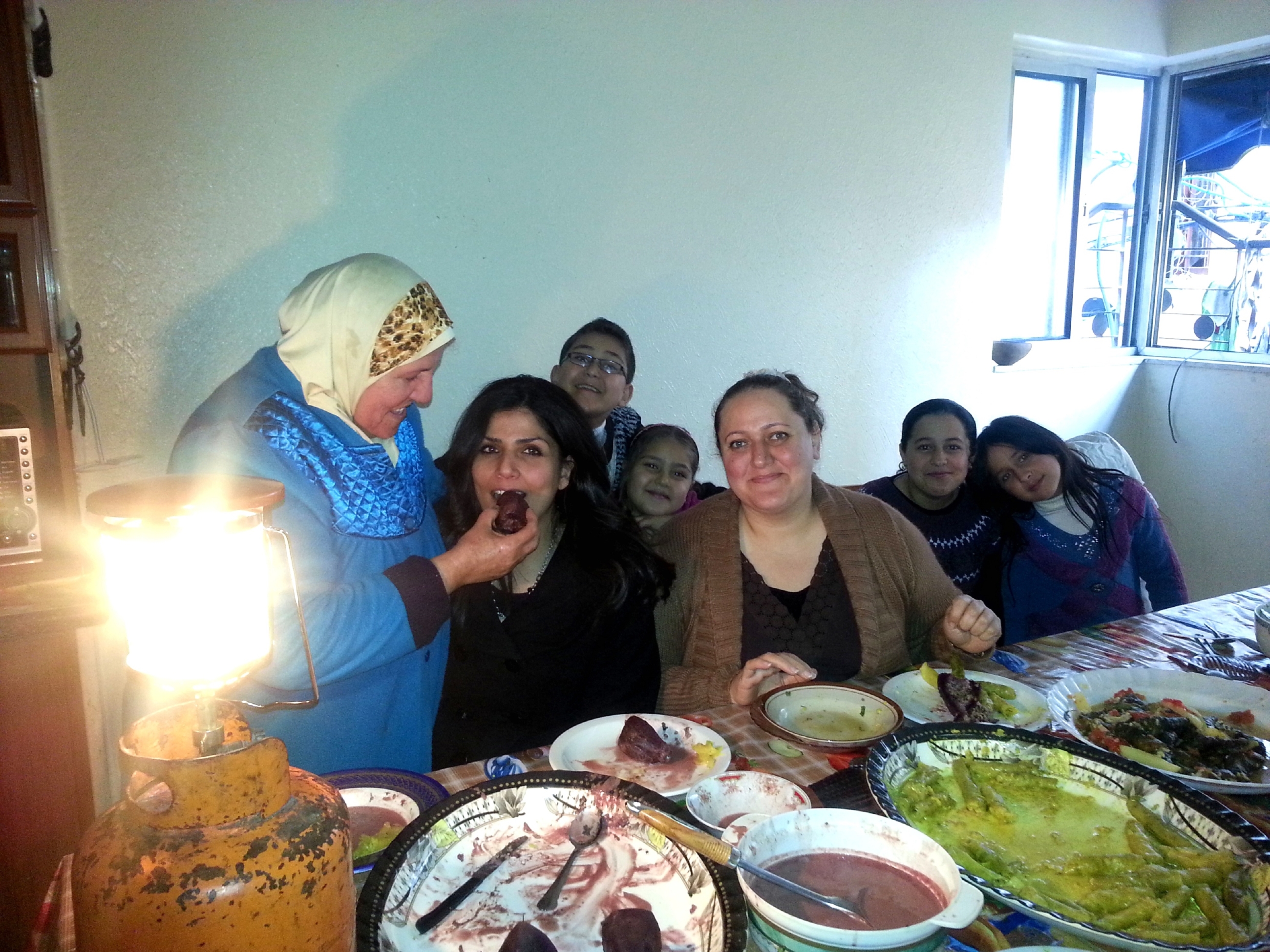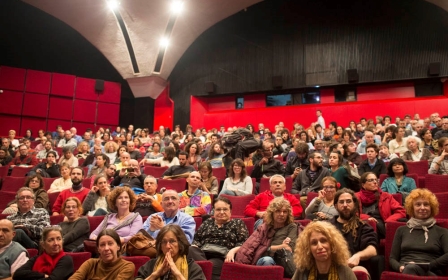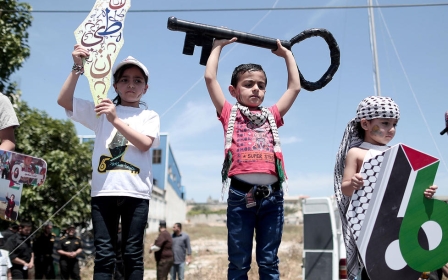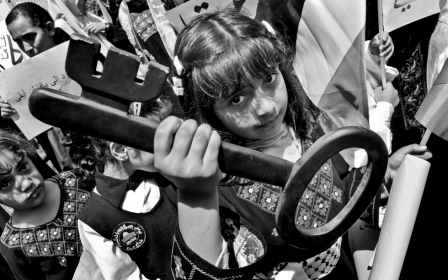Reflections on Nakba by a Palestinian trapped outside the cage

My family emigrated to Australia in 1980 and lived on a farm on top of a hill in rural Victoria. One fine spring morning shortly after we were granted Australian citizenship, my father, no longer a stateless refugee, sat on a deck chair on our terrace and surveyed with his eyes the panoramic view of the Dandong Ranges that surrounded our new home. The view was breathtaking. Yet, tears welled up in his eyes and a sense of insurmountable sadness gripped his heart. This was his moment of realisation; no matter how far he travelled, how serene his surroundings, how peaceful his life may seem, he would always feel crushed by the injustice of being trapped outside his homeland and never allowed the right to return. "You inhabit me like anxiety," he wrote in a poem born out of that moment.
Thirty-five years later, I find myself facing my own moment of realisation. The city of my birth, Gaza, is an open-air prison, and I am trapped on the outside.
Gaza "inhabits me like anxiety". It bends and stretches, filling the spaces around me with its constant presence. It refuses to be reduced to memories, or to fit into a clichéd existence. It insists that it is more than childhood memories of my parents teaching me how to dip my bread in olive oil and doka, more than bedtime stories of orange orchards and majestic olive trees, more than the scent of meramiah tea and the burning taste of hot chilies in my mouth.
Gaza is more than the loving embrace of a thousand and one uncles and aunties. Gaza is more than warm sahlab on cold winter nights and sweet crushed ice in the summer breeze. Gaza is more than streets named after martyrs and houses crammed in refugee camps along the sea. Gaza is more than kind gentle faces I love, smiles and zaghrootas at greetings and endless tears at goodbyes. Gaza is more than the sum of its parts, but all of its parts are the sum of me.
Gaza is where I belong. Though my feet have hovered above the ground for so long, uprooted, disconnected, Gaza grounds me. Uninvited, it accompanies me through the twisting and winding paths of life. It crashes into me and crashes in me. It watches me constantly. It judges me for engaging in lighthearted conversation and frowns when I laugh about silly inconsequential life events. It turns its back in protest when I complain about normal things. Gaza yearns for normalcy.
Gaza is interruption. It pokes its head into casual conversation only to kill it. When asked "Where are you from?" I sometimes hesitate for a minute. I try to say the word "Gaza" without the emotions infused in it. But it is like dropping a bomb on social niceties. At the mention of its name, faces freeze in pain. I offer a smile to make it better. I wish there was a casual way of uttering the word "Gaza". There isn’t. I see minds race to find an appropriate retort. The standard "I’ve always wanted to go there" or "What’s the weather like in Gaza" does not work. No one will exclaim when hearing its name and share with me memories of haggling in the old bazaar or smoking shisha at a café by the Mediterranean. The only thing I get for revealing where I’m from is a sympathetic nod of the head and a rush to move on to a lighter note. Gaza is awkward. It does not fit the mould of a casual conversation.
Gaza is an infliction. It sits beneath my skin and crawls through my veins. I feel spasms at times at the strangest of places. At a school function for my son Gaza drags itself along, broken, undone. My happiness and joy is tainted by guilt. I think of boys my son’s age - wearing my son’s features, carrying my son’s name - torn to pieces before finishing their school year.
Gaza is collective trauma that reverberates across the sphere. In the park watching children play on swings Gaza forces itself in. I try to push it out of my mind only to finally relent. I think, "What if a bomb falls here, now? Where would I run? And if something should happen to my kids, would I have the strength to carry on?" I keep repeating "I am safe. I am not in Gaza." Gaza shrugs its shoulders and calls me a drama queen.
Gaza is sleepless nights and early mornings staring into my computer screen, as if it were a lifeline. It is blurry vision as I reach for my glasses and laptop to check who made it through another night of bombing in Palestine. Gaza is the obsession of wanting to know the names of those killed praying there is not a familiar one. Gaza is hearing bombs explode on Skype and saying goodbye every time as if it were the last one. Gaza is Googling images for a school project and having to sift through thousands of pics of body parts scattered in rubble. Gaza is morbid porn and international voyeurism.
Gaza is more than resistance and heroism. It is more than a romantic notion of defiance and resilience. Gaza is also the sobbing and trembling voices that pray to die rather than live another day of suffering. Gaza is despair. Gaza is wanting to escape from Gaza. Gaza is resenting Gaza. Gaza is resenting those who write about Gaza as if it were a symbol or a legend. Gaza is real. It is cruel and unwavering.
Gaza is survival. Gaza is beauty and revival. It is life beyond the slogans, the factions, the propaganda and the politicians. It is bare hands digging through the earth looking for flesh, looking for loved ones, looking for belongings, looking for hidden treasures, looking for tunnels that can transport a dream to a place where Gaza may seem serene - from the distance.
Gaza is my moral compass. It is the epicentre of the battle for justice. It is an ongoing reminder of the original sin: Nakba and ethnic cleansing. Gaza is Palestine. It is my identity. I am trapped outside its walls and it is trapped inside of me.
New MEE newsletter: Jerusalem Dispatch
Sign up to get the latest insights and analysis on Israel-Palestine, alongside Turkey Unpacked and other MEE newsletters
Middle East Eye delivers independent and unrivalled coverage and analysis of the Middle East, North Africa and beyond. To learn more about republishing this content and the associated fees, please fill out this form. More about MEE can be found here.




